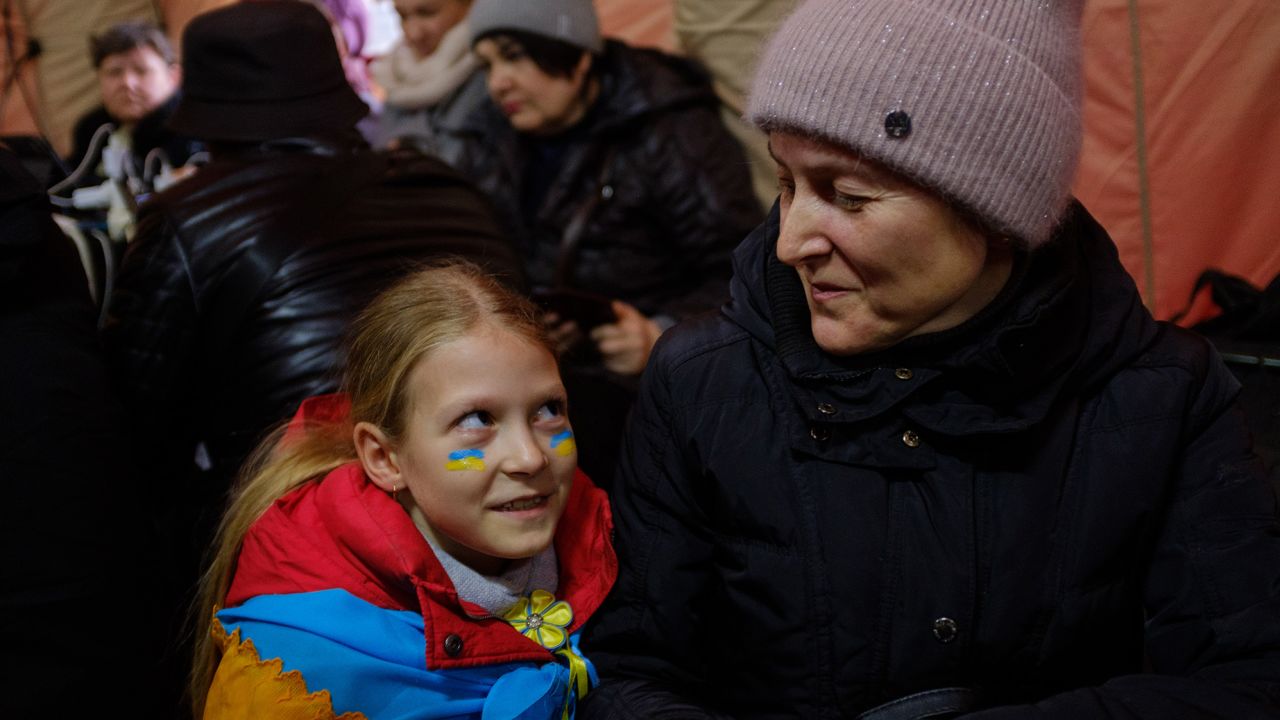Kherson, scarred by the Russian occupation: accounts of torture and abuse 3:30
Kherson, Ukraine (CNN) --
A pool of blood-stained water and the charred remains of a car mark the spot in Kherson where Russian shells ripped through the city on Thursday of last week, killing four people, according to local authorities. , and breaking any sense of calm.
Russian President Vladimir Putin claims that this region has been annexed and that the people here are now Russian.
But his troops are gone, and now they are killing the civilians they were once sworn to protect.
The inhabitants of Kherson suffer from a severe shortage of water and electricity, and with the arrival of winter, the situation worsens.
Latest news and news of Russia's war in Ukraine from November 29
Shortly after the invasion of Ukraine began, Kherson was taken by Russian forces, only coming out of months of occupation on November 11, when Kremlin troops withdrew.
Now the residents are suffering the kind of violence that many know in this country.
In a small grocery store also destroyed by recent bombing, a desperate local searches through the rubble for scraps of food and toilet paper rolls, scavenging for what little he can to survive.
advertising
"Is everything so bad?" we asked.
"Not good," she replies grimly.
Russian billboards in Kherson are replaced by Ukrainian ones.
A man fills containers with water from the Dnipro River, with Russian-controlled territory just across the waterway.
The water supply to this town has been cut off by the Russian attack, so we see an old woman in the street placing a bucket under a drainpipe to catch a faint trickle.
Others, like Tatiana, who prefers not to give her last name, take the perilous walk to the banks of the Dnipro River on which this city sits.
Russian forces continue to control the opposite bank and the strategic river now marks the front line with Russian forces only a few hundred meters away.
Tatiana fills two black plastic buckets and then trudges up the hill to her house.
"How can we live without water? We need it to wash, for the toilet, to wash the dishes," she says.
"What can we do? We can't live without water. That's why we come here."
The rumble of artillery exchanges between Russian and Ukrainian forces resounds in the background.
This is not a place to be entertained.
Kherson residents charge their phones in a tent provided by the local administration.
Just two weeks ago, the city's central square was the scene of jubilation after Russia's withdrawal, one of the biggest setbacks for Moscow in this war.
Now, the tents set up by the local administration stand as monuments to the various hardships of this place.
One is to warm up, another to charge phones and another to help those who are fed up and want to leave altogether.
In the charging tent, people of all ages crowd around the tables, sipping tea, and plugging into the endlessly daisy-chained power strips.
The air is charged with body heat and breath.
Hanna and her daughter Nastya sit on a cot.
The girl turned nine the day before and has been decked out with a Ukrainian face and a flag draped over her shoulders.
"It was very hard: we lived through the entire occupation," says Hanna.
"I can say that we live much better now. Without water, without electricity, but also without Russians. It's nothing. We can get through it."
After months of occupation, Nastya shares the rebellion of the adults around her.
"I think our enemies will die soon," she says.
"We will show them what they get if they occupy the Ukraine."
That challenge is also felt by those outside the city, who avoided the occupation but lived on the front lines of the battle.
What strategy could Ukraine use when winter comes?
3:45
Valeriy, 51, and his wife Natalia, 50, hid in their potato cellar this spring when Russian shells rained down on their dairy farm, wrecking their kitchen and destroying a tractor and car.
His roots here run deep.
"Our umbilical cords are buried here," says Natalia, using a Ukrainian expression.
But when the fighting became too violent, they abandoned their home and their beloved cows in the war, only recently returning after months of exile.
"How is our life? Great."
says Natalia laughing as she washes the dishes with water heated on a stove.
"It's very tough. But at least we're home."
Valeriy is holding a large piece of metal shrapnel, all that is left of the missile that landed in his yard.
"We lived calm and in peace," he says.
"We worked, we earned money. Some farmed, others had farm animals."
Seeing what has become of his people is "like a stone that weighs on my soul," he says.
"Everything we earned and built we did with our own hands. Now it's very hard to go back and see what the Russian scum did to us. I have no other word for them."
But he came back with a nice surprise.
Her beloved cows—left to wander the fields for months—had survived.
"I gave them a hug!" she says, hugging them again, with a wide smile.
"I felt joy! They have survived. I was very worried about them."
CNN's Luis Graham-Yooll and Kosta Gak contributed to this report.
war ukraine

